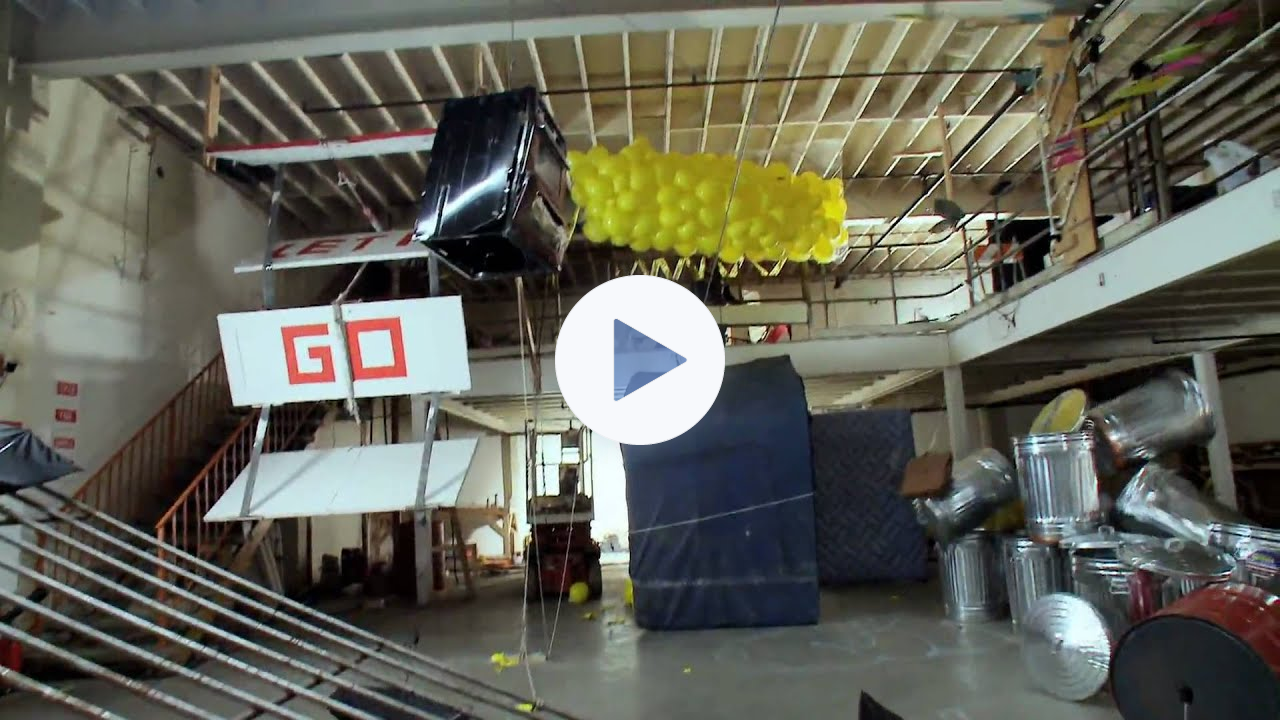This week, a stimulus and menu of questions co-created last Wednesday with a class new to P4C. To connect with their topic – Forces – I showed them the music video for “This too shall pass” by OK Go. It follows a huge Rube Goldberg machine from first domino to last splat. It really needs to be seen to be believed.

If you’re getting children to create questions for the first time, here are three tips to “grease the wheels”:
First, to help this class distinguish philosophical from factual questions, I showed them a few of each kind, before getting them to create lots more of their own, but without providing any criteria or steer. Once they’d come up with loads, I divided the room with a skipping rope and labeled one half “Find out” and the other “Argue about”. In other words, a section for those that have a factual answer we could research, and one for and those with more than one possible answer. As a group we decided where each question should go. Here are a few:
| Find out How long did it take to set up? How many takes did they need? Was it dangerous? How many people were involved? Was it fun to make? | Argue about Does everything happen for a reason? Does everything have a consequence? Can you know the future? Do humans have free will? What caused nature? |
his is a simplified approach to Phil Cam’s Question Quadrant, which divides questions into four boxes. The Question Quadrant is a great way to really dig into different kinds of questions but for a class new to P4C, it can be a lot to take in.
Second, the best philosophical questions involve at least one concept or big idea. Model the concept-creation process by thinking out loud about the stimulus. “This stimulus makes me think about causes…consequences…the future and the past” and encourage learners to add to your list. They can then use these concepts to create more questions for the “Argue about” column.
Lastly, to help cement the features of a philosophical question in their minds, ask them to identify what the proposed questions have in common. In our case, the children commented that all questions were a “yes/no” (not always the case in P4C, but true here), and they were questions that allow them to change their mind.
Best wishes,
Tom
PS: As well as being terrific musicians, OK Go are known for their intricate and adventurous music videos. They’re well worth a watch!